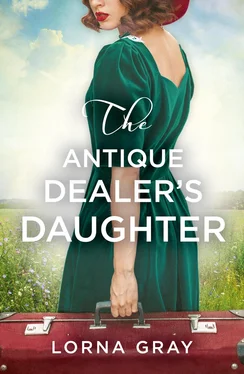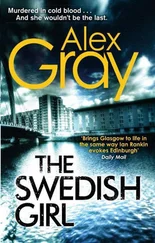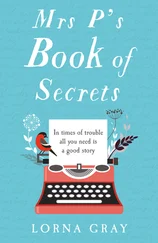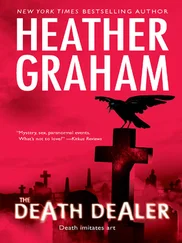She was flushing and trying to act as if she hadn’t said a thing. She knew she’d made a mistake. She attempted to make amends by urging Mr Winstone onto his feet and then there was a sudden rush of life back into this room as stronger hands than hers lunged to keep the old man from falling. There was a scuff as the armchair was moved aside and then a decisive lurch of men across the room towards me and the door.
I was outside before I knew it. They were driving me along from behind. After all that anticipation, the fresher air of a dusky August sky was no relief at all. The shadows chased me out. These people were disturbing me far more than any brief distress of finding an old man on his path and I thought I had remembered now what old business Mrs Abbey had stumbled into talking about. My cousin had mentioned something like this in her letters.
The squire was an old army man and my cousin called him Colonel, presumably because my cousin didn’t owe him the same deference he got from those who deemed him lord and master. Her letter had mentioned the tragedy of a son’s death in some sort of incident in the winter. She’d implied that the loss had shattered the entire community, and I’d witnessed proof myself now of its wounds. But having said so much, my cousin’s letter had declined to convey the rest, in part due to her preoccupation at that time with her own mother’s death and also to supposedly preserve tact and to save misunderstandings later. And also, I’d thought, to irritate my curiosity in that infuriating way people have when they have something they wish they could talk about but don’t want to be the gossip who tells you.
As it was, I wasn’t quite sure I wanted to find out the rest quite like this. There was an additional hint within my cousin’s letters that a local man had been caught up in the mess and I thought I had some idea now of who that local man might be.
Mrs Abbey began to rapidly retract her judgement of the old squire’s neglect of his estate. It was too late though. It was horrible but it was as if Mrs Abbey had accidentally summoned the dead son, poor man, and it was his shade, or at least the shadow of his end, that crept after us from the house.
Now she was bustling ahead and chattering about her wretched squatters instead. And all the while I thought the strangest thing of all was that no one simply swept it all away with the obvious retort that Mr Winstone hadn’t been hinting anything at all. The poor man could barely recall meeting me on his path; he certainly wasn’t giving graphic accounts of the terrors that had walked him home and connecting them to any old business that could affect people like this.
Mr Winstone was scuttling along behind her, between his helpers. He wasn’t terribly steady on his feet. It was only after they had made it through the gate and past me to move on towards the car that Danny said something rather dry that made the ugliness that had been working its tentacles after them along the path sharply turn on its heel and climb out over the garden wall. He said that he was glad that someone was on hand to give such a well-founded explanation of how his stepfather’s injury today had stemmed from that scene in March, because this was the first mention he’d heard of that tragedy for almost six months. His dry humour was for his friend’s sake. I knew it was because it drew that man’s attention from the immediate task of preventing the invalid from pitching headfirst into the side of the car. I saw Matthew Croft right the old man and then turn his head to give a surprisingly warm grin. And then I was only left with the puzzling realisation that while I had been watching and worrying over the reasons why a man like Danny Hannis might find himself unable to risk offending Mrs Abbey, I really should have been noticing that she didn’t like his friend at all.
She was, however, perfectly, convincingly repentant. She knew she’d made a crass mistake and if she didn’t, she certainly found out when it cost her the right to accompany Mr Winstone on his trip to consult the doctor. I felt almost sorry for her when she joined me just as the men were depositing their charge in the passenger seat. She had been roundly excluded from the crush as Mrs Winstone organised herself into the back seat. Danny was folding himself in beside his mother without so much as a glance for the neglected neighbour. It became all the more humbling when the small dog clambered in after them. The only person who didn’t go was the wavy-haired youth Freddy, who was hovering by the bumper in that helpful way people have when they desperately want to be useful but have no idea what to do. I thought he was waiting for orders and it belatedly occurred to me that Matthew Croft had been intending to offer the boy as my companion when he’d been trying to organise my walk home.
I didn’t mean to give Matthew Croft time to remember. I was a few yards away, at the limit of the pockmarked garden wall, and I would have left there and then except that Mrs Abbey had her hand on my arm as she told me earnestly, ‘You’ve been badly shaken by your brush with this fellow, haven’t you?’
She was speaking as though nothing else mattered beyond Mr Winstone’s injury. Perhaps nothing else did. They all knew each other, these people, and the slip about a man’s death must have been made by others before. I played for the same indifference while carefully dodging away from that clutching hand of hers. After all, it had last been seen grasping a bloody rag.
I remarked lightly, ‘Shaken by that man? No.’
She looked disbelieving. ‘You kept dithering in and out of the room all the time that we were talking.’
I conceded the point with a faintly worn smile. Rightly or wrongly, I soon took advantage of a disturbance within the car to make my getaway from all of them. That telephone was ringing again – that blessed reminder of noisy things that belonged in the companionable bustle of my familiar city life – and I went to it like it was a lifeline.
Suddenly it wasn’t as late as I’d thought. I supposed escape might feel like that. The large house that stood on the opposite side of the triangle was still touched to warmth by the last of the day’s colour. It wasn’t the one that was ringing. That was coming from the other side of the village; in the space after the church but before the turn where the lane coursed away downhill. This grand house was the steward’s house and it was where my cousin had lived and grown until her father had died and her mother had retired to the cottage. I’d only visited these parts once as a child and that had been when I was eight. I barely remembered it but I did remember the village boys who had waged cheerful war with my cousin’s older brothers while my cousin scolded and I trailed about behind the lot of them like a pathetic undersized shadow. It was possible that Danny Hannis had been one of them.
The house seemed to be a boarding house for farm workers now. There was a steady stream of them passing between the steward’s house and what I’d taken earlier to be a derelict farmyard, only now it was flooded with light and crowded with men and tired carthorses. This, suddenly, was the bustle I was used to. Here the crowds took the form of dusty males ranging along the lines of various low stone walls, smoking and drinking weak beer. The farmhands were all, to a man, tanned and wiry. None of them wore a pale summer jacket. I suspected that most weren’t wealthy enough to own one.
Freddy didn’t own one either. He caught up with me before I’d even reached the point where the track veered to the right, downhill to my cousin’s cottage, or left around the lower limit of the churchyard and towards that telephone. He grinned at me as he fell into step beside me. He was all limbs and amiableness. ‘I don’t mind walking with you, Miss.’
Читать дальше












